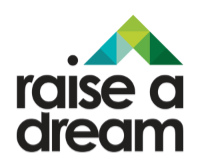Knowing your audience well helps brand and collaboration partners & sponsors make their decisions on potential sponsorship and collaboration initiatives. To know your audience well, collecting helpful audience data and feedback is important. After all, sponsorship decision-makers want to ensure that the dreams you are raising and the projects you are bringing to life are a fit for their brand’s objectives and marketing goals.
Questions to help you better understand your audience...
More...
One place to start with gathering audience data in the context of sponsorship research is to ask the right questions.
- How well do you know your audience and your social media following / community?
- Are you aware of what products and brands they love and use?
- What do you know about their pain points and unmet needs?
- How familiar are you with the causes that resonate with your audience or those that they support?
- Do you have a sense of some of your potential sponsor’s marketing goals and the target audiences they want to reach?
How do we find information about our audience?
One of the reasons a sponsor may consider your project as one to partner on (or at least be willing to hop on conversations and learn about the sponsorship opportunities) is because your audience is of interest to them. Your audience is one they want to be in front of and have a connection to.
Having this information readily available is important when you want to talk to sponsors. Below are a couple suggestions for getting started.
Having this information readily available is important when you want to talk to sponsors. Below are a couple suggestions for getting started.
#1: Ask questions and track answers.
When you want to better understand your own audience (and see or document where there might be a fit for a brand or partner’s target audience), you can start to compile your own audience data spreadsheet.
When you see people in your social community talking about products or events they love or just learned about, make a note on your chart. Then go a little deeper. Make a comment on the social media post like, “That is so interesting. I love learning about different products. What do you love about this product?” Asking questions and getting details helps you gather info and intel. You could also ask if anyone else had used the product and what they thought.
You could do a “question of the week” in your social community or your groups with questions such as:
Chart everything so that you start seeing themes. It may start to become clear what brands could be good to set up discovery calls with (e.g. where you see an unmet need in your audience, what partner might want to work with you to help meet those needs). A discovery call is an opportunity for you to learn more about that particular brand and business. If the discovery call is with a potential sponsor, it is likely that a sponsor will ask you a question about your audience. The more that you know about your audience, the more helpful you are to the sponsor in determining if there is a fit with your project.
- “What are the three business products that make the biggest difference for you and why?”
- “What are the three personal products that make the biggest difference for you and why?”
- “What has been your most impactful learning this week?”
You could also ask questions about pain points such as:
- “What are the biggest challenges you are dealing with in business right now?”
- “What are the barriers you face in business?”
The more you ask, the more you learn.
#2: Share polls and ask for feedback.
Polls on social media are another way to collect information. In addition, doing end-of-project feedback surveys or feedback forms (such as when you speak at an event), may help you determine the questions your audience may still have or where they want more information.
You may want to consider doing a questionnaire-style survey once a year to your audience to find out more about them.
Collecting helpful audience data and information can not only help a potential sponsor, it can absolutely help you better serve your community! Remember, the more you learn about your audience, the more you can find the “right fit” sponsors.
You may want to consider doing a questionnaire-style survey once a year to your audience to find out more about them.
Collecting helpful audience data and information can not only help a potential sponsor, it can absolutely help you better serve your community! Remember, the more you learn about your audience, the more you can find the “right fit” sponsors.



0 comments